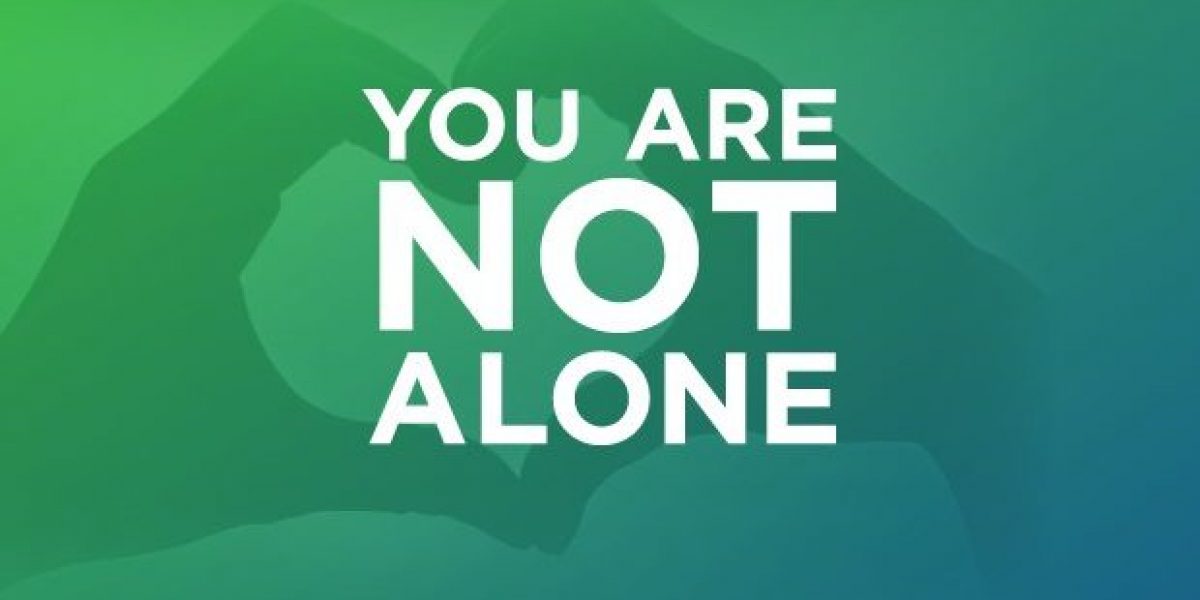Mental Illness Awareness Week (MIAW), celebrated each year in October, is an annual national public health education campaign that is designed to help open the eyes of Canadians to the reality of mental illness. MIAW is about raising awareness, encouraging people to speak out, and ending the stigma associated with mental illness.
What is the difference between Mental Health and Mental Illness? Mental health is a very important component of our overall health and wellbeing. You cannot truly be healthy without good mental health. Mental health involves our emotions, our thoughts and feelings, our ability to solve problems and overcome difficulties, our social connections, and how we act and interact with the world around us. It’s not about avoiding problems, stress or negative emotions; it’s about living well, finding balance in all aspects of life, and having the tools cope with difficult situations and life’s many challenges.
On the other hand, mental illnesses are conditions that can cause changes in thinking and behaviour. They can cause distress and make it difficult to enjoy everyday life. Mental illnesses are complicated conditions that develop from a combination of genetics, biology, environment, and life experiences. Some examples of different mental illnesses are: depression, anxiety, post-traumatic stress disorder, bipolar disorder and schizophrenia.
Poor mental health does not always lead to a mental illness (or vice versa). Just as it’s possible to have poor mental health but no mental illness, it’s entirely possible to have good mental health with a diagnosis of a mental illness.
Who is affected by mental illness? Mental illness indirectly affects everyone at some time through a family member, friend or colleague. Mental illness affects people of all ages, education, income levels and cultures. In fact, 1 in 5 people in Canada will personally experience a mental health problem or illness in any given year. Bringing these numbers to a smaller scale, it would mean that over 600 people in Marathon have been personally affected by a mental illness.
How common is mental illness? By age forty, about 50 percent of Canadians will have or had a mental illness. In fact, 500,000 Canadians, in any given week, are unable to work due to mental illness.
How does mental illness impact youth? Many mental illnesses first appear when a person is young. Although mental illnesses may look different in children than in adults, it can impact the way young people learn and build skills, which can lead to challenges in the future. Mental illness is increasingly threatening the lives of our children; with youth suicide rates being among the leading causes of death in 15 to 24-year-old Canadians.
Can mental illness be cured? Diagnosed mental illness has no cure. However, by working with their healthcare team, individuals with a mental illness can get better through treatment that typically includes one or more of the following options: therapy, medications, and support (from loved ones or groups). With these treatments and supports in place, people who experience a mental illness can lead productive, engaged lives that include things like working, volunteering and contributing their unique skills and abilities to their communities. Therefore, instead of thinking of people who are living well with a mental illness as being “cured”; think of them as being “in recovery” and still having to use different tools every day in order to keep them feeling well.
Why are some individuals afraid to seek help? Unfortunately, harmful stigmas and stereotypes surrounding mental illnesses still exist. Fear and shame are the most common reasons for not seeking help. Individuals often recognize the negative stigma and discrimination associated with having a mental illness. This causes fear and concern of being labeled as someone who has a mental illness and how such a label could negatively impact their career, education, or other life goals.
This is why MIAW is so important. It’s a time to provide awareness and to let people know that they are not alone. The pandemic has also brought on new challenges and highlighted existing struggles that individuals face. All people deserve timely and effective mental health supports. And as COVID-19 continues to put a strain on our communities, we need to prioritize mental healthcare now more than ever.
Where to get help?
- Marathon Family Health Team: 807-229-3243
- North of Superior Counseling Programs: 807-229-0607
- Biigtigong Mno-zhi-yaagamig Health Centre: 807-229-1836
- Dilico Anishinabek Family Care: 807-822-2521
- Pic Mobert Health Centre: 807-822-2625
- People Advocating for Change through Empowerment (PACE): 807-229-0357
- Online support (i.e. Big White Wall): www.bigwhitewall.com
- Crisis Response 24/7 Hotline (i.e. Connex Ontario): 1-866-531-2600
For more information, please visit the Canadian Alliance on Mental Illness and Mental Health’s website: https://www.camimh.ca/mental-illness-awareness-week/about-miaw/



